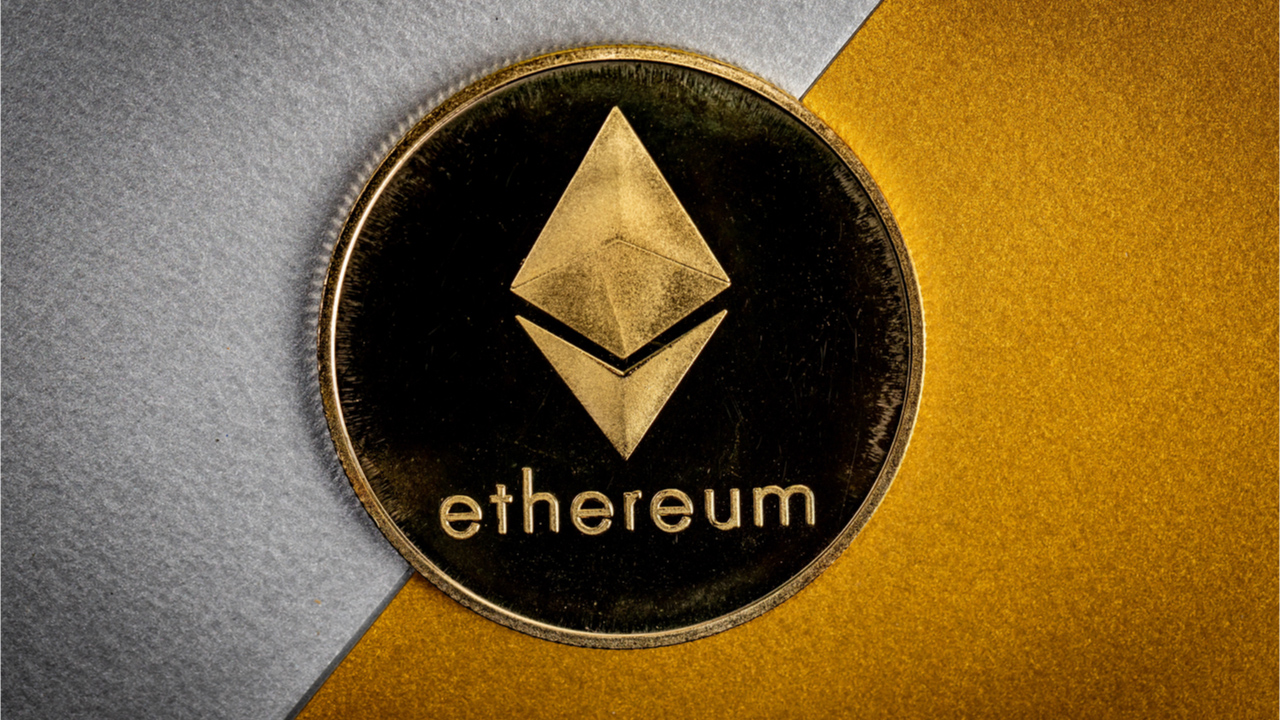 Investments in alternative assets such as cryptocurrencies account for over half of the portfolio of non-qualified Russian investors, a recently held survey has indicated. Almost half of them consider digital currencies like bitcoin as a potential hedge. Cryptocurrencies Outperform Traditional Currencies and Stocks in Russia Alternative investments like crypto, real estate, and antiques constitute more […]
Investments in alternative assets such as cryptocurrencies account for over half of the portfolio of non-qualified Russian investors, a recently held survey has indicated. Almost half of them consider digital currencies like bitcoin as a potential hedge. Cryptocurrencies Outperform Traditional Currencies and Stocks in Russia Alternative investments like crypto, real estate, and antiques constitute more […] In a year with rising crypto prices, online chatter devoted to cryptocurrencies has increased significantly. Research carried out on Russian social media has identified the most talked about coins and it’s not just bitcoin on people’s minds. Experts List Most Mentioned Cryptos on Russian Social Media Brand Analytics, a company specializing in media monitoring in […]
In a year with rising crypto prices, online chatter devoted to cryptocurrencies has increased significantly. Research carried out on Russian social media has identified the most talked about coins and it’s not just bitcoin on people’s minds. Experts List Most Mentioned Cryptos on Russian Social Media Brand Analytics, a company specializing in media monitoring in […] A recent study suggests that 99% of people from Mexico and Brazil and 96% of Americans fail to grasp the basic concepts of cryptocurrencies. Out of all the survey respondents aware of bitcoin, 17% in the U.S., 15% in Brazil, and 14% in Mexico own the crypto asset. The report published by cryptoliteracy.org further explains […]
A recent study suggests that 99% of people from Mexico and Brazil and 96% of Americans fail to grasp the basic concepts of cryptocurrencies. Out of all the survey respondents aware of bitcoin, 17% in the U.S., 15% in Brazil, and 14% in Mexico own the crypto asset. The report published by cryptoliteracy.org further explains […] Financial technology (fintech) has exploded during the last two years and cryptocurrency and blockchain firms have bolstered the billion-dollar industry. A recently published study by Utility Bidder indicates that the industry is predicted to surpass $382 billion by 2027. Moreover, fintech firms that are blockchain-specific are projected to be worth over $67.4 billion by 2027. […]
Financial technology (fintech) has exploded during the last two years and cryptocurrency and blockchain firms have bolstered the billion-dollar industry. A recently published study by Utility Bidder indicates that the industry is predicted to surpass $382 billion by 2027. Moreover, fintech firms that are blockchain-specific are projected to be worth over $67.4 billion by 2027. […] Most game developers in U.S. and U.K. are now using blockchain elements in their games, according to a study released this week. The study, commissioned by a company named Stratis, reveals that the popularity of blockchain, NFTs, and the new play-to-earn model in the crypto market is making game developers change the traditional ways in […]
Most game developers in U.S. and U.K. are now using blockchain elements in their games, according to a study released this week. The study, commissioned by a company named Stratis, reveals that the popularity of blockchain, NFTs, and the new play-to-earn model in the crypto market is making game developers change the traditional ways in […]
Games have been pay-to-play, but blockchain and NFTs are here to change that, Stratis CEO Chris Trew told Cointelegraph.
A new study from the United Kingdom revealed that most game studios have already started exploring blockchain technology for their upcoming titles.
Commissioned by blockchain platform Stratis and undertaken by insight agency Opinion, the new research surveyed 197 video game developers in the United States and the United Kingdom. The results showed that 58% of developers are beginning to use blockchain technology, and almost half of the respondents (47%) started incorporating nonfungible tokens (NFT).
The study indicates developers’ confidence in blockchain and NFTs, as two-thirds of studios expect blockchain to become prevalent in the gaming industry within the next two years. While 72% of respondents are considering using blockchain and NFTs in upcoming games, more than half (56%) plan to apply the new tech within 12 months.
Speaking to Cointelegraph, Stratis CEO Chris Trew explained that blockchain techn, tokens and NFTs are vital technologies for new digital worlds and gaming experiences. “They enable players to own a stake in the games they play by, for example, buying land within a metaverse game as an NFT or a car in a racing game,” he said.
“Historically, games have been pay-to-play, and the value accrued only to companies and platforms. Blockchain and NFTs turn this situation on its head,” Trew added.

The top three benefits of blockchain for the video game industry are innovative gameplay (61%), securing value for players by keeping money in the game (55%), and rewarding players with real-world value (54%), according to the study.
While indie game developers moved to the blockchain and NFT space first, with around 20 of them working with Stratis blockchain, Trew believes that major developers, also known as AAA companies, won’t be far behind. Big names such as Ubisoft and EA have already announced their interest in the technology, and Epic Games has welcomed blockchain games to its platform.
Related: Ubisoft will seek to invest in and create blockchain games
Game developers’ interest in blockchain focuses on decentralized finance or GameFi (57%), the play-to-earn model (46%), NFTs offering in-game item ownership (44%), and in-game digital currency (42%).
Game developers will consider play-to-earn games’ network effect, or players will simply migrate to games that reward them for their time, Trew commented. “Gamers are passionate. Giving them a chance to have a stake in the game, to be able to earn money in the metaverse just like you can in the real world is revolutionary.”

Minister Monica Mutsvangwa clarified that Zimbabwe is not considering the adoption of cryptocurrencies or Bitcoin.
Zimbabwe’s minister of information publicly dismissed ongoing rumors about the country considering the adoption of cryptocurrencies and Bitcoin (BTC). Rather, Minister Monica Mutsvangwa clarified that the government of Zimbabwe is keen to experiment with a central banking digital currency (CBDC).
The rumor about Zimbabwe’s crypto adoption was sparked based on numerous reports quoting Charles Wekwete, permanent secretary of the president’s office, saying that the government was in talks with private sector businesses to help introduce cryptocurrency in the country.
Just one day after the reports, Mutsvangwa took to a cabinet briefing to dismiss the ongoing crypto adoption claims:
“Government would like to assure the nation that it is not considering introducing another currency in the economy as reported in some sections of the media. Our local currency is the Zimbabwe dollar (ZW$) and not cryptocurrency.”
Moreover, the minister clarified that the government of Zimbabwe is following the footsteps of other countries by studying “CBDC as opposed to cryptocurrencies, bitcoins or any form of derivatives.”
It is important to note that CBDCs are digital tokens issued by a government’s central bank. If launched in Zimbabwe, the digital tokens will be pegged with the Zimbabwe dollar and will have the monetary value of the local currency in real-time.
Governments around the world are experimenting with retail and wholesale CBDCs to find cheaper cross-border payment alternatives while increasing their ability to track transactions to deter money laundering and other fraudulent activities.
Related: Ghana to explore offline transactions for upcoming CBDC
CBDCs are now being looked at by many governments in Africa as a tool to speed up their financial inclusion initiatives. Most recently, Ghana joined the growing list of African countries that are currently experimenting with CBDC use cases.
As Cointelegraph reported, the CBDC developed by the Bank of Ghana, the e-cedi, will support offline transactions. According to the bank’s head of fintech and innovation, Kwame Oppong, “The e-cedi would be capable of being used in an offline environment through some smart cards.”
The offline transaction feature of Ghana’s CBDC aims to catalyze the technology’s adoption in regions that lack reliable access to electricity and internet connectivity.
 During the second week of October, the total value locked (TVL) in decentralized finance (defi) protocols crossed $200 billion, and two weeks later in November, the TVL in defi surpassed $250 billion gaining 25% in value. Meanwhile, Ethereum commands more than 67% of the $253 billion TVL in defi today, gaining 4.65% during the last […]
During the second week of October, the total value locked (TVL) in decentralized finance (defi) protocols crossed $200 billion, and two weeks later in November, the TVL in defi surpassed $250 billion gaining 25% in value. Meanwhile, Ethereum commands more than 67% of the $253 billion TVL in defi today, gaining 4.65% during the last […] On October 29, the total value locked (TVL) in decentralized finance (defi) protocols is around $243 billion with Curve capturing 7.76% of the dominance. Meanwhile, as ethereum has the largest dominance of TVL in defi, a number of alternative blockchains are seeing significant increases every week. Moreover, the TVL in cross-chain bridge technology has reached […]
On October 29, the total value locked (TVL) in decentralized finance (defi) protocols is around $243 billion with Curve capturing 7.76% of the dominance. Meanwhile, as ethereum has the largest dominance of TVL in defi, a number of alternative blockchains are seeing significant increases every week. Moreover, the TVL in cross-chain bridge technology has reached […] At the end of July, the product comparison website Finder.com published its research findings from a panel of experts that predicted the crypto asset ethereum would reach $4.5K this year. On October 25, Finder updated its “Ethereum Price Predictions Report” that polled 50 financial technology specialists and ethereum is now expected to reach “$5,114 by […]
At the end of July, the product comparison website Finder.com published its research findings from a panel of experts that predicted the crypto asset ethereum would reach $4.5K this year. On October 25, Finder updated its “Ethereum Price Predictions Report” that polled 50 financial technology specialists and ethereum is now expected to reach “$5,114 by […]